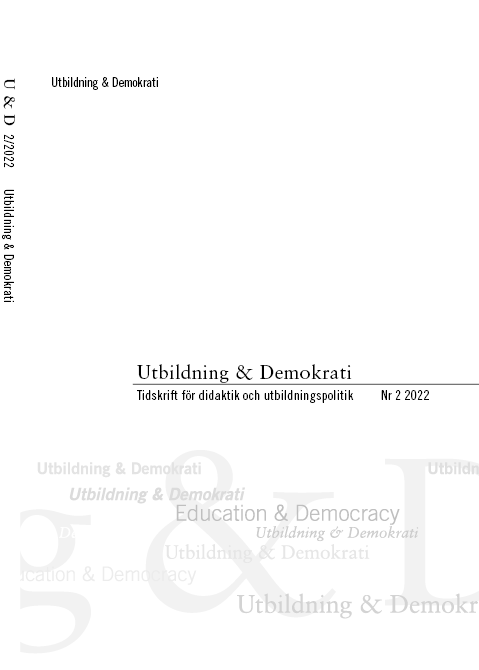Att delta utan att närvara
Skolplikt i förändring
DOI:
https://doi.org/10.48059/uod.v31i2.1913Nyckelord:
school absence, compulsory schooling, distance learning, democratic educationAbstract
Compulsory schooling in Sweden was introduced in 1842. However, its meaning has changed over time, both in terms of who it applies to, how long it applies and how it can or should be implemented. During the 2000s, compulsory schooling has become synonymous with the obligation to be present in school and attend class. There are students who for medical, mental and social reasons can not go to school and fulfill their school obligation. In order to ensure that these students receive the education they are entitled to, a new chapter was introduced in 2020 in the Swedish Education Act, enabling distance learning. The purpose of the article is to learn more about how the educational policy framework of school attendance and everyone’s right to education can affect the meaning of compulsory schooling, and how this discursive change can have consequences for students, schools, and society. To achieve this, government policy texts on distance education and school attendance published in 2017-2021 are analyzed. The consequences that are perceived to follow from teaching beyond the school area are also discussed here. One consequence that is highlighted is that the school’s democracy mission ends up in danger. The analysis is inspired by Carol Lee Bacchi’s approach WPR (What’s the Problem Represented to be).




